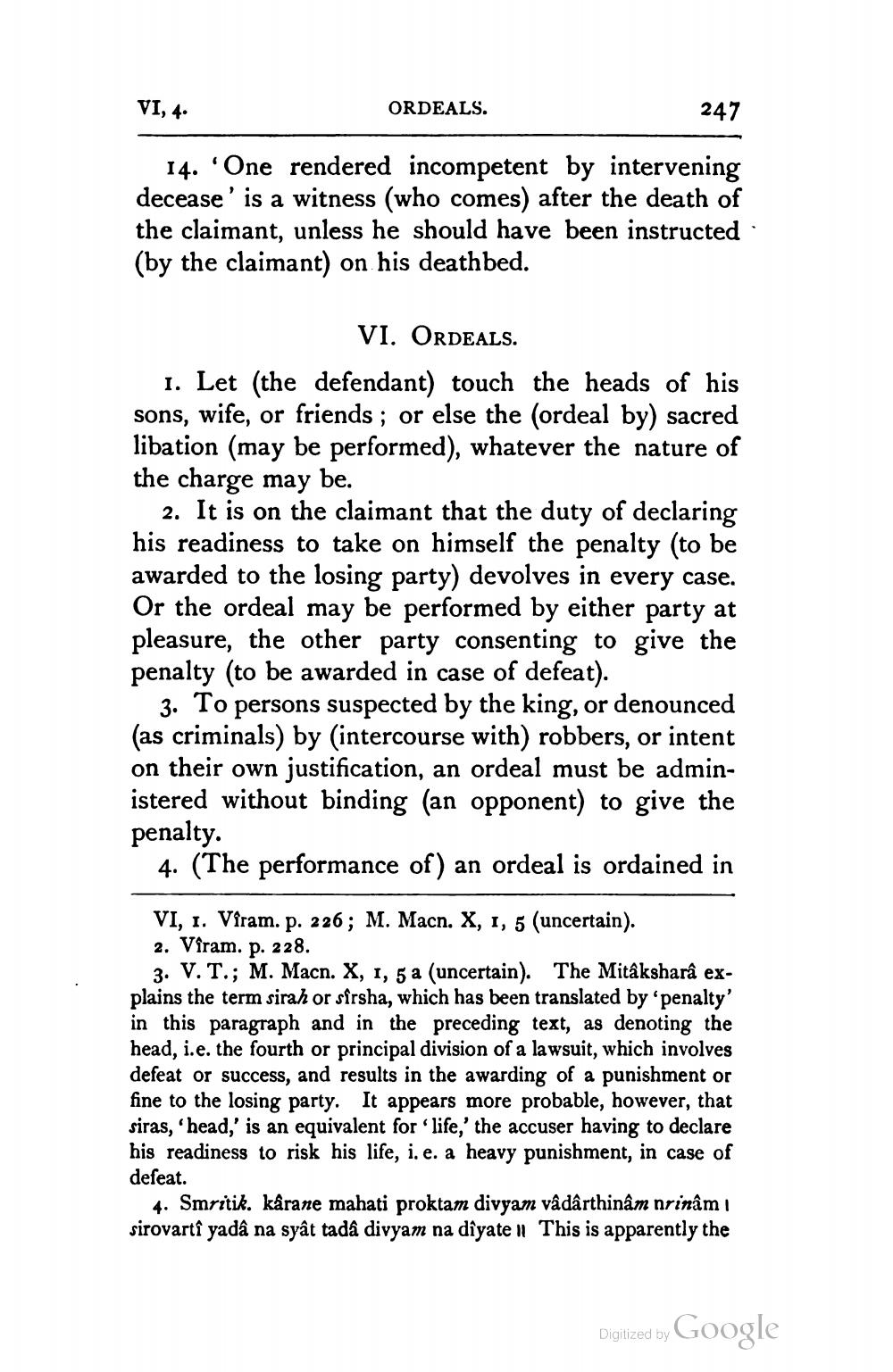________________
VI, 4.
ORDEALS.
247
14. 'One rendered incompetent by intervening decease' is a witness (who comes) after the death of the claimant, unless he should have been instructed (by the claimant) on his deathbed.
VI. ORDEALS. 1. Let (the defendant) touch the heads of his sons, wife, or friends; or else the (ordeal by) sacred libation (may be performed), whatever the nature of the charge may be.
2. It is on the claimant that the duty of declaring his readiness to take on himself the penalty (to be awarded to the losing party) devolves in every case. Or the ordeal may be performed by either party at pleasure, the other party consenting to give the penalty (to be awarded in case of defeat).
3. To persons suspected by the king, or denounced (as criminals) by (intercourse with) robbers, or intent on their own justification, an ordeal must be administered without binding (an opponent) to give the penalty.
4. (The performance of) an ordeal is ordained in
VI, 1. Vfram. p. 226; M. Macn. X, 1, 5 (uncertain). 2. Vîram. p. 228.
3. V.T.; M. Macn. X, 1, 5 a (uncertain). The Mitâksharâ explains the term sirah or sîrsha, which has been translated by 'penalty' in this paragraph and in the preceding text, as denoting the head, i.e. the fourth or principal division of a lawsuit, which involves defeat or success, and results in the awarding of a punishment or fine to the losing party. It appears more probable, however, that siras,'head,' is an equivalent for 'life,' the accuser having to declare his readiness to risk his life, i.e. a heavy punishment, in case of defeat.
4. Smritik. karane mahati proktam divyam vâdârthinâm nrinâmi sirovarti yada na syât tada divyam na dîyate | This is apparently the
Digitized by Google




